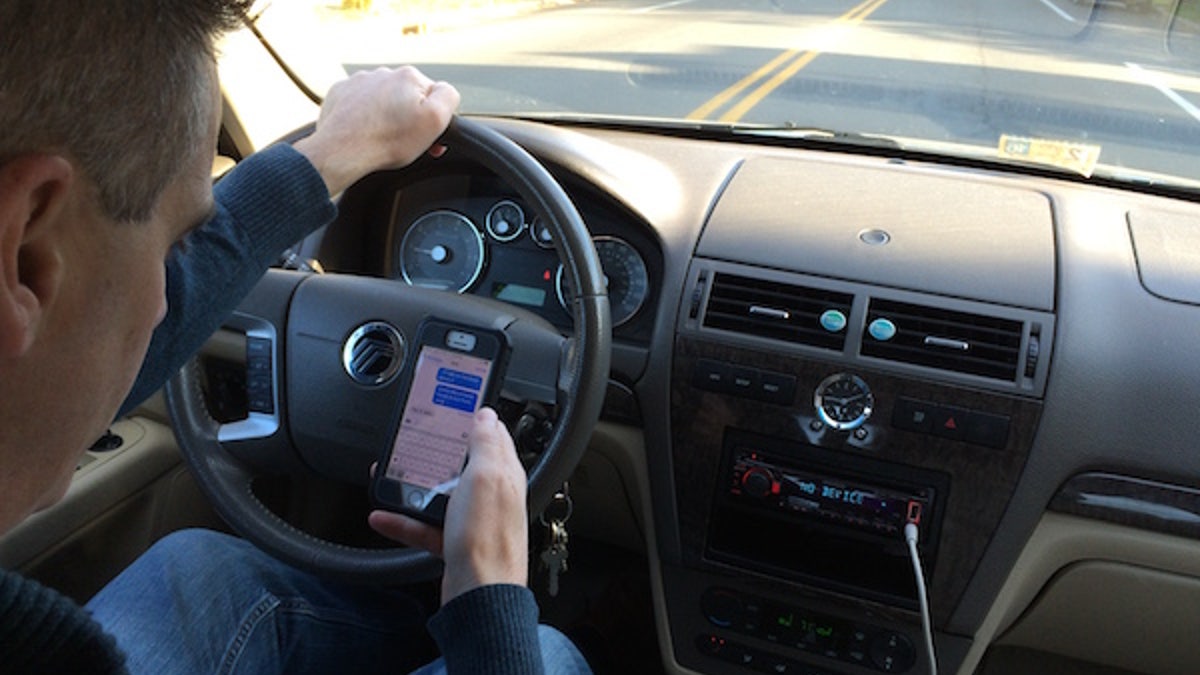
Have you ever had an experience behind the wheel when the difference between life and death was thinner than an eyelash?
They are those life-blink moments that pass with a flash and remind you that life’s closing curtain can drop to the stage without warning.
Like all second chances, they only change our lives if we let them.
Recently I was driving near my home when I approached the crest of a hill on a quiet two-lane straightaway. I was 20 yards from the peak when a pickup truck flew over the hill in the middle of the road.
I hit the brakes and watched the driver, a man perhaps in his 20s, drift farther into my lane until his grill was aimed straight for mine.
My horn shouted and I stared at the angry chrome fist of his heavy-duty truck.
The other guy? He stared at his cellphone.
I thought. Is this it?
I swerved to the right and came to a stop in a front yard triangle of three trees, child’s toys and a mailbox.
The truck corrected back to his lane and raced off.
After a silent prayer, I got out and walked around to make certain I hadn’t damaged the yard — or worse. No one was home and with no visible evidence of my adventure onto their property, I backed into the road and slowly rolled away.
I’d been lucky or blessed, depending on the role faith plays in your life. I was angry with the stranger on his phone and imagined what I might say to him if our paths crossed again at something other than 35 mph.
In my self-righteous head, I wrote a condemning speech that started and ended with “shame on you.”
In the days since, I’ve started paying attention to how many times I check my phone when the wheels are moving. My unscientific findings?
I could have easily been the one in the white truck that day. The only difference is that this time he was the one texting and I was the one actually paying attention.
And chances are it could’ve been you, too.
Did you know that according the U.S. Department of Transportation's National Highway Traffic Safety Administration, at any given moment, approximately 660,000 drivers are using cellphones or manipulating electronic devices while driving and 26 percent of all automobile crashed involve cellphone use?
The National Safety Council has plenty of data, too. They report that one-third of American drivers admit to reading or sending text messages or emails while driving. And how many of us don’t admit it?
Obviously, it’s not just about fender benders. The Institute for Highway Safety finds that 11 teenagers die every day from accidents caused by texting and driving. And let’s not speed past the laws. 46 states have passed strict bans and in most cases, it’s a primary offense with steep penalties.
Today, tomorrow and the next day I will drive past that same front yard and give thanks that I’m not a statistic. I also think about the man in the white truck and wonder if he realizes how truly fortunate he is that I’m still here to write about the experience and he’s still around to read about it.
Instead of this column, it could have been an obituary.
Like all second chances, they only change our lives if we let them. That man and I are alive today and whether by fate, fortune or divinity, he and I have an obligation not to repeat dangerous habits.
America, it’s time to put our phones down. Let’s look out the window at the real planet and not the virtual world that spins on a tiny screen in our right hands. None of us can control whether or not we’ll be called to our heavenly home from a car, but we can pledge that if it happens, it won't be because we're texting.
I think if I ever get a chance to deliver that speech to the man in the white truck, I'll skip the shame and offer a simple promise.
"I'm done texting and driving. Are you?”








































